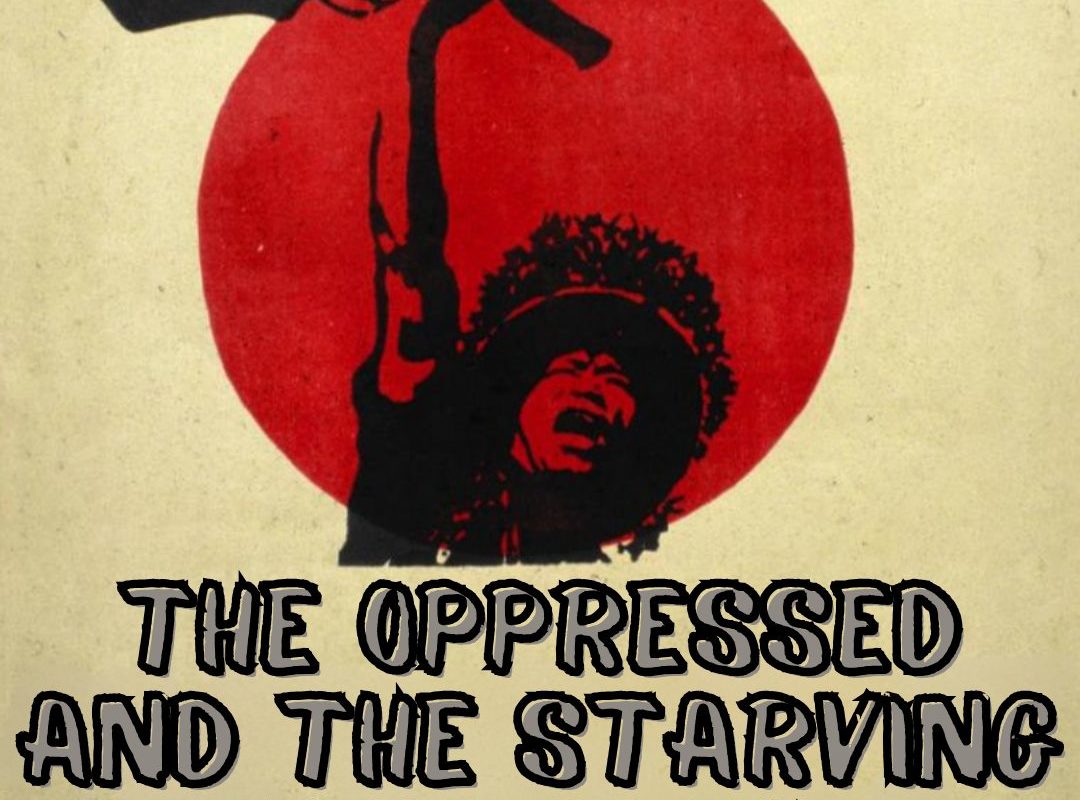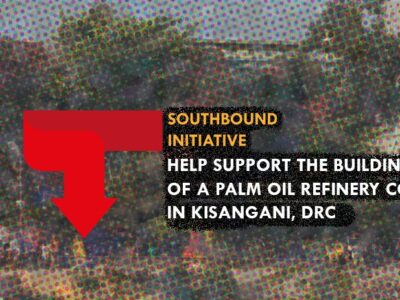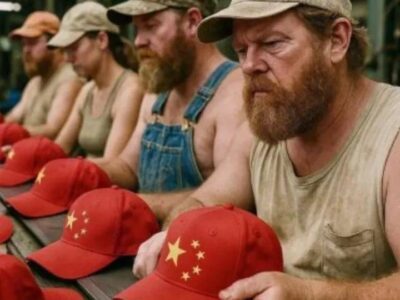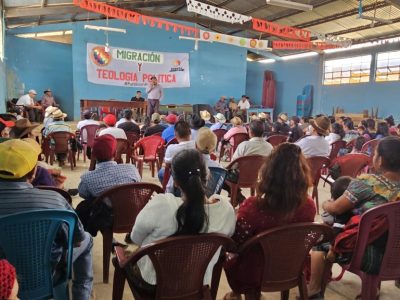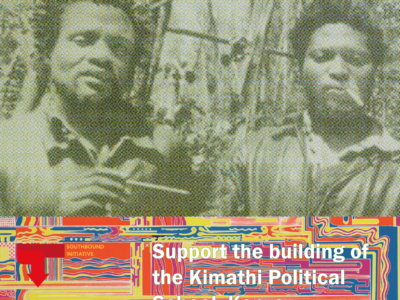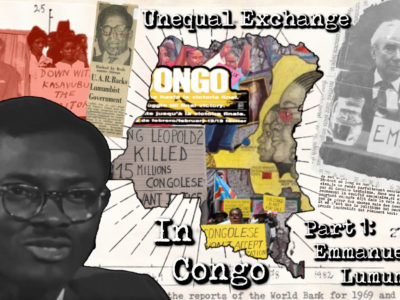Torkil Lauesen June 2024
The two waves of anti-imperialism
I was politically mobilized by the solidarity movement with the Vietnamese people’s struggle against U.S.-imperialism in the late 1960s. Up through the 1970s, the organization, which I belonged to, wanted to continue and expand the anti-imperialist struggle by supporting other liberations movement in the Third World. Creating two, three Vietnam – as suggested by Che Guevara.
One of those struggles was the Palestinian – specifically we supported the PFLP. It was not a random choice. PFLP were communists, had a mass base, waged armed struggle and were internationalists. But most importantly, the creation of a Palestine state was a battle against the Israeli settler state – a “battleship on ground” – and a close ally to the U.S., controlling the Middle East with its vast oil reserves and strategic geopolitical location, guarding the Red Sea, Arab Gulf, Suez Canal and the Asian – African – European triangle of trading corridors. Supporting the PFLP was supporting the global anti-imperialist struggle.
Anti-imperialism declined from the late 1980s, as the neoliberal counter offensive swept through the world. However, after more than 40 years, a new wave of anti-imperialism has gained force.
The war in Gaza has created a new layer of anti-imperialists in the Global North, not seen since the late 1960s and early 1970s solidarity movement with the Vietnamese struggle. At the time, the solidarity work was grounded in a broader analysis of imperialism, and a long-term strategy for anti-imperialists and the struggle for socialism. This kind of analysis and strategic thinking is also needed in the current new wave of anti-imperialism. The solidarity with Palestine has to be placed in the perspective of a broader anti-imperialist struggle. The mobilization of solidarity with the Palestinian struggle is also a schooling in organization, and learning of how the systems works in our part of the world. About the power instruments of the state, about the media – about imperialism in general.
As I believe in the long transition towards socialism, I think that anti-imperialism is a continued struggle and so the handing over of experience and knowledge from one generation to the next is important. We need a solid analysis of how imperialism works to develop an anti-imperialist strategy and from this a specific praxis. We need to think in the line: Analysis – strategy – praxis. We need to know what to do tomorrow, next month, and next year on a solid foundation of knowledge and strategic thinking to defeat imperialism.
There are similarities and differences between the Vietnamese struggle and the new wave of anti-imperialism generated by the Palestine struggle in Gaza. Let me begin with the global context. The Vietnamese national liberation struggle was part of the decolonization process after the Second World War. It had a strong socialist current originated from China, Cuba and the balancing force of the Soviet Union versus the U.S., creating the political and military space for national liberation struggle to take place.
The Palestinian struggle is due to the U.S. support to the Israeli settler state, one of the last of the national liberation struggles, and it is taking place in the era of the decline of U.S. hegemony, the rise of China and the emergence of a multipolar world-system. The difference between the two waves if anti-imperialism is that, while the struggle of the long sixties was characterized by a strong socialist ideological spirit, but weak economic strength of the Third World, the current wave is somewhat more motley ideologically, but backed by a much stronger economic Global South, headed by China. In the 1970s the Third World demanded a new world-order, which came to nothing; today they are building it by their own force. The rather small attack on the 7th of October 2023 by the Palestinian resistance movement, armed only with hand-weapons, has set an avalanche of events in motion. It is a sign of how different and unstable the world-system is today.
Turning to differences in local context between the two struggles: The Vietnamese defeated first the French colonialists, then U.S-imperialism by the strategy of “people’s warfare” and the guerrilla tactic adapted by Ho Chi Minh and Vo Nguyen Giap from the Chinese revolution. The Palestinians tried the same strategy, but lacking a secure homebase, and the geography of vast jungles and mountains needed for such kind of warfare, they were driven out, first from Jordan in 1970, then Lebanon in 1982. In the next decades followed more or less spontaneous recurring “intifadas” in vain, as the Israeli settlers grabbed more and more land. To compensate for the geographical deficiencies, the resistance movement in Gaza built a comprehensive tunnel system and developed a strategy of urban warfare against the Israeli army. It is not a long-term military strategy. The resistance will not be able to repeat the attack and continue this kind of warfare, when the ongoing war in Gaza reaches its end. However, the war in Gaza has certainly managed to weaken the settler-state. Israel has lost the war in Gaza politically and morally.
The vast majority of the world’s nations and populations look with contempt at the state of Israel. Gone is the sympathy for the Jewish settler state, except for the governments in the EU and North America. Their continued support has unmasked the hypocrisy of the Western powers talk of human rights and democracy, in front of the world.
Israel has spoiled their main ally – the U.S.’s – reputation in the region – and in the global South in general. It has united the U.S. main enemy in the region -Iran- with the Arab world.
Israel has sown the seeds for a new resistance movement, bigger, stronger, and more dedicated to the struggle for Palestine than ever.
How will Israel rule Gaza and the West Bank in the future? The task will be economically and politically very difficult. The Zionist settler-state that once appeared solid and steadfast, has proven to be fragile, eroding from within and under growing pressure from outside. While winning the war in Gaza, the Zionist state is now fighting for its future existence. In that perspective the strategy was a success, in spite of the immense suffering of population in Gaza. The home of more than two million people is turned into rubble, no hospitals, no schools, no water, electricity, or sewer systems. 40.000 killed. Many more wounded, in the future physically handicapped and mentally ruined. More than two million people are locked up in a destroyed environment, without means for their own survival.
The Palestinian resistance must now develop a comprehensive strategy for the future struggle. A coordinated strategy comprising not only Gaza, but also the West Bank, Israel and the Palestinians in diaspora. Soon the imperialists will initiate a “two state peace process” to save the Israeli settler-state and construct a Palestinian comprador state. This must be confronted with the struggle of the decolonization of Palestine, creating a secular state where different ethnocultural groups can live side-by-side in the same territory. Confronting the politically weakened, but still heavily armed settler-state, supported by U.S and the rest of G7, such a strategy of resistance needs to be embedded in the anti-imperialist struggle in the region and in the global confrontation between the U.S. led imperialism and the majority of the states in the Global South. Let’s take a look on this confrontation in broader perspective.
From neoliberal globalization to geopolitical confrontation
With the crises of global neoliberalism from 2007, the decline of the U.S. hegemony, the rise of China, and the development towards a multipolar world-system, the world is undergoing a profound change, not seen in the past hundred years. The centre no longer has the advantage of a monopoly of high-tech industrial production and they are losing the grip on global finance. To uphold its hegemony the U.S. is now splitting and eroding the neoliberal world market, which has served them so well for fifty years, providing huge profits and cheap commodities for consumers in the Global North. They are doing it by trade wars, sanctions and blockades. The U.S turned to political pressure and military means in a geopolitical struggle for dominance. This strategy is not an expression of strength, but of weakness.
The division of labor created by neoliberal globalization, with Asia as the “factory of the world” and the West as consumer societies, meant that the geopolitical importance of controlling trading routes became paramount. Hence the importance of the gateway to Asia in the North – Ukraine – and in the South – Palestine, Suez, the Persian Gulf, and the Red Sea. In a geopolitical struggle, NATO led by the U.S. are trying to secure dominance of the Euro-Asian corridor and get a regime change in Russia and China, to pro-Western Yeltsin-type governments.
Through the proxy-war on Ukrainian soil between Russia and NATO, the US has disciplined Europe back under US command. The U.S. is dragging Europe into the confrontation with Russia, China, Iran, Cuba, Venezuela, and the Global South in general. NATO membership is not an a la carte dish; Europe must swallow the whole American menu, including U.S. policy in the Middle and Far East.
The contradiction of the end game
Many of us in the “1968 generation” have predicted the end of capitalism several times, and our hopes for world revolution were frustrated. This has led to the mistaken belief that capitalism can assimilate all critiques and innovate out of all problems. Capitalism has successfully reproduced its existence for 200 years, but there are limits to this reproduction. It is not a system in balance. The polarized development between the centre and periphery generated by the imperialist value transfer enabled it to reproduce itself. However, this dynamic is challenged by the rise of China. The decline of U.S. hegemony forebodes the end of capitalism.
From the Global North, the U.S., in its desperate struggle to uphold its hegemony, is disrupting the imperialist pipeline system of globalized production and trade. From the Southern flank, China has succeeded in diminishing the imperial rent of unequal exchange, while simultaneously breaking the technological monopoly of Western corporations and financial institutions, providing an alternative for the Global South in their economic development.
In “the end game” global capitalism will be haunted by economic crises generated by the inherent contradiction between the need to expand production and the lack of corresponding consumption power. Profits will decline and accumulation will come to a halt.
The current principal contradiction
What is the driving force in this transition? The first step in answering this question is to identify the principal contradiction. The US, the EU, Japan, New Zealand, and Australia, have united to uphold U.S. hegemony. They constitute one aspect of the current principal contradiction. The other aspect is headed by China allied with a conglomerate of states which, for different reasons, are opposed to the continuation of U.S. hegemony and want a multipolar world system. They are united in the ambition to change the North-South structure, which has dominated the world-system for the last two centuries and expand South-South relations.
The endgame of capitalism takes place within a framework of its structural crisis economically, politically, and ecologically. The structural crisis entails that the system is out of balance and that conjunctions do not come in regular waves, but by sudden uncontrollable swings.
Climate change is a reality; it is the rate of destruction that is unclear. Where will the next disaster strike, and how big will it be? The growing ecological and climatic problems as well as the scramble for the Earth’s natural resources can trigger revolutionary situations, as it changes living conditions, causing natural disasters and refugee movement. There is also the danger of nuclear war, in a world system with intensified geopolitical struggle, induced by the declining hegemon. A War between the world’s leading powers could very well become the world’s principal contradiction if they escalate into the use of nuclear weapons. The end of capitalism can be chaos or a transition the socialism; it depends on the outcome of our struggle.
Anti-imperialism today
Anti-imperialism today cannot be the same as it was in “the long 1960s”. History does not repeat itself; it moves ahead. The high revolutionary spirit, and the success of the anti-colonial struggle, from the late 1940s until mid 1970s to a combination of contradictions in the world system. The contradiction between the Socialist Bloc versus the U.S., and the contradiction between the emerging Third World on one side, and the U.S. neocolonialism on the other side. This set of interlinked global contradictions open up a wave of anti-imperialist liberation struggle, with a socialist perspective, across Asia, Africa, and Latin America.
All this changed with the counter-offensive of neoliberal globalization from the mid-1970s. It became difficult to continue national liberation into a socialist transformation. However, neoliberalism was not “the end of history”. The result of outsourcing of industrial production, was on the one hand the transfer of value from South to North. On the other hand, the development of productive forces in the Global South began to break up, the century old polarization between a rich North and poor South. In the 70s, the Third World demanded a “New World Order”, which came to nothing. Today the Global South is creating a new world order.
One example is BRICS+ comprising 46 percent of the world’s population, and 36 per cent of the world economy, counterbalancing the G7 (U.S., Canada, the UK, France, Italy, Germany, and Japan) with only 10 per cent of world population and 30 per cent of the world economy. BRICS+ is not an anti-capitalist organization. But it is a step in the right direction. The emerging multipolar world system consists of a complex of contradictory currents – between hegemonism and counter-hegemonism, conservative and progressive, capitalist and socialist forces. This is how the world looks. We have to keep in mind Marx’s words, that no social order disappears before all the productive forces, for which there is space, have been developed. We are reaching this point. Then – as Marx continues – comes the period of social revolution.[1] The challenge is to navigate in this sea of interconnected contradictions.
The anti-imperialist struggle, in the post Second World War era and up through “the long sixties,” was waged by popular movements fighting for national liberation, with the support of transitional states such as Soviet Union, China and Cuba.
Via the decolonization process the exploited and oppressed people managed to organize movement that were able to achieve national liberation. However, those newborn states were still victims of exploitation and oppression by the dominating imperialist centre.
In the difficult last quarter of the 20th century, with the U.S as the sole ruler of the world-system, some of them were sliding back into being agents of imperialism.
However, with the decline of neoliberalism, and the rise of China, breaking the two centuries tendency of polarizing the world-system into a centre-periphery structure, the states in the Global South had gained breathing space and thereby possibilities to adopt an anti-imperialist standpoint. In the current wave of anti-imperialism, the transitionary states have become a stronger economic and political actor in the world-system, providing room for other states to move away from imperialist dominance, and movements towards socialism.
Like in the sixties, the contradiction between the North, trying to uphold its hegemony, and the Global South, can create space for movements and nations struggling for advancing towards socialism. The development of the productive forces in the Global South, has placed them in a much better position to achieve this goal than in the sixties. The U.S. is still the dominant aspect in the principal contradiction, but the South is on the offensive, encircling the centre. While the transformative power of the Third World in the sixties was based on the “revolutionary spirit” – the attempted ideological dominance over the economic development – the current transformative power of the Global South, is based on its economic strength.
Things may develop faster than we expect. The next decades will be dramatic and dangerous. The transition will not be a tea party. We will see sudden changes in political alliances and in this scenario, we need to stay the course and stick to a clear socialist perspective. At the same time, we are working under time pressure due to climate change.
The question for us here in the Global North is: How can we contribute to the struggle? My experience originates mainly from Denmark, one of the most pro-NATO countries, participating alongside the US in Iraq, Afghanistan, Libya, Syria, and currently in Red Sea. I am aware that there are differences in the social and economic conditions between the countries in the Global North, but I think there are also similarities, which makes my thoughts relevant.
Anti-imperialism in the belly of the beast
Like in the 1960s, the anti-imperialist movements in the centre, is generated by the struggle in the Third World – the Vietnamese then – the Palestinians today. We are not the driver of the anti-imperialist struggle. It is the exploited and oppressed in the Global South.
Anti-imperialists in the North will be a minority, but an important minority. Refugees and migrant workers can be an anti-imperialist “Trojan Horse” within the Global North. Because of their position in production and services, they are not powerless, and their affiliation with family and hope for the economic development of their homeland in the Global South may be stronger than their loyalty to a state that barely tolerates their stay.
Our role is to support the struggle in the South political and materially, and to ensure that the centre is not a secure homebase for imperialism. This will make us an enemy of the state. The state will try to silence us, by all means from propaganda to criminalization. We will be labelled national traitors, but that is better than being a class traitor.
We will not get broad popular support in our struggle. We will not be like a “fish in the water.”. The majority of the population in the Global North supports NATO, as they think it defend their freedom and way of living. Huge parts of the population are turning to the right, against immigration. Nevertheless, we must try to convince them, that it is their long-term interest to be anti-imperialist, and it is dangerous to side with NATO. It will be a difficult task. However, the continued political and economic crisis, in the centre, will provide breeding ground for a change in attitude in the long run. Such a crisis should be welcomed, as it will accelerate the decline of the imperialist centre. We must explain that the decline of the West, after 500 years of colonialism and imperialism, is something we must embrace, and that the rise of the Global South and a multipolar world-system, can lead to a more equal and sustainable world-system. A revolutionary situation in our part of the world is not possible without the victory of the global South over imperialism, and thereby an economic and political crisis in the centre.
To be an anti-imperialist, in our part of the world, is something you choose to be. It is not grounded in the socio-economic conditions. It is not a necessity. We do not have to resist to exist – as in Palestine.
As a member of anti-imperialist organizations in the past fifty years, I have seen comrades come and go. Some lose the confidence or interest in the project, in down-turns in the struggle. Others drop out, when anti-imperialism no longer fits into study plans, personal life or professional career, arguing that they are becoming older, more mature, wiser, less naïve – and so on. Some getting important jobs or entering the corridors of power, are embarrassed over their former views and personal relations. This is not a personal critique. It is the terms of mobilizing for anti-imperialism in the belly of the beast. The anti-imperialist organisation in the Global North is unstable and fragile. We have to take that in consideration, when building organizations and developing strategies. We should look for dedication and discipline in the world, and comrades who are in for the long struggle.
In the coming decades the struggle will become intensified, as capitalism moves into the end game. It will not be “a walk in the park.” We must prepare for that on the organizational and personal level. That means having a solid analysis of how the world-system will develop in the coming years. From that we can develop a strategy, that can be put into a concrete praxis. All this, not in abstract and general terms, but as specific and concrete as possible. Which movements, organization and nations are the most important anti-imperialist forces? How can we support them politically and materially? What skills and forms of organization are needed to do so, in the current stage of the struggle? We also need an analysis of the enemy side. What are the most important imperialist organisations and nations? How can we go against them? What will their reaction towards our resistance be? How can we best prepare for this encounter?
We must also prepare ourselves on the personal level. We will be under pressure from both state and the surrounding society. From mainstream media and culture to colleges and family. Choose your struggles so as not to be burned out. Ho Chi Minh gave us some advice. They may sound banal, but give them some consideration:
“Think before you talk.
Be determined when you act.
Be cautious when you write.
Be calm and composed in the hour of decision.
Control yourself when you get angry.
Forget about your melancholy.
Let your personal sorrows go for the greater cause.”
To sum up:
- Imperialism is a global system and requires a global anti-systemic response. Imperialism cannot be fought exclusively within nation-state borders in isolation from other struggles.
2. Anti-systemic movement must be globally coordinated, and its priorities must be set accordingly, and not opportunistically for local short-term objectives.
3. The anti-imperialist struggle is centered, in the Global South, where exploitation and oppression are most urgent, and environmental destruction greatest. We must support popular struggles in the Global South not only in words, but in deeds, and by material means.
4. We in the Global North, should not be passive bystanders, waiting for the proletariat in the Global South to create a revolutionary situation, in our part of the world. We must make sure, that the North is no safe “hinterland” for imperialism, which means struggle against right-wing nationalism, racism, and most important, against imperialist political and military intervention in the Global South.
5. If our struggle is more than words, it will have consequences. We should plan and be prepared for this, on the personal and the organizational level. How will the global struggle develop in the next decade? How can I, and my organization, fit into the analysis of the objective and subjective forces of transition? What kind of support can we deliver? The specific ways, and which means to use, in the struggle, depend on the type of organization, and the specific political situation and place.
6. The criminalization of anti-imperialism will be increased. On the personal level, it is not easy to be ad odds, not only with the state, but also mainstream society. There are strong forces, which aims integrate us in the system. It will be difficult to maintain a clear-cut opposition to the system and accept that economic and political crises are part of the “end game” of capitalism, and we should welcome it.
The oppressed and exploited will be victorious!
[1] Marx, Karl (1859). Contribution to the Critique of Political Economy. Part One Preface. In: Collected Works. Vol. 29. Moscow: Progress Publishers, 1977.

